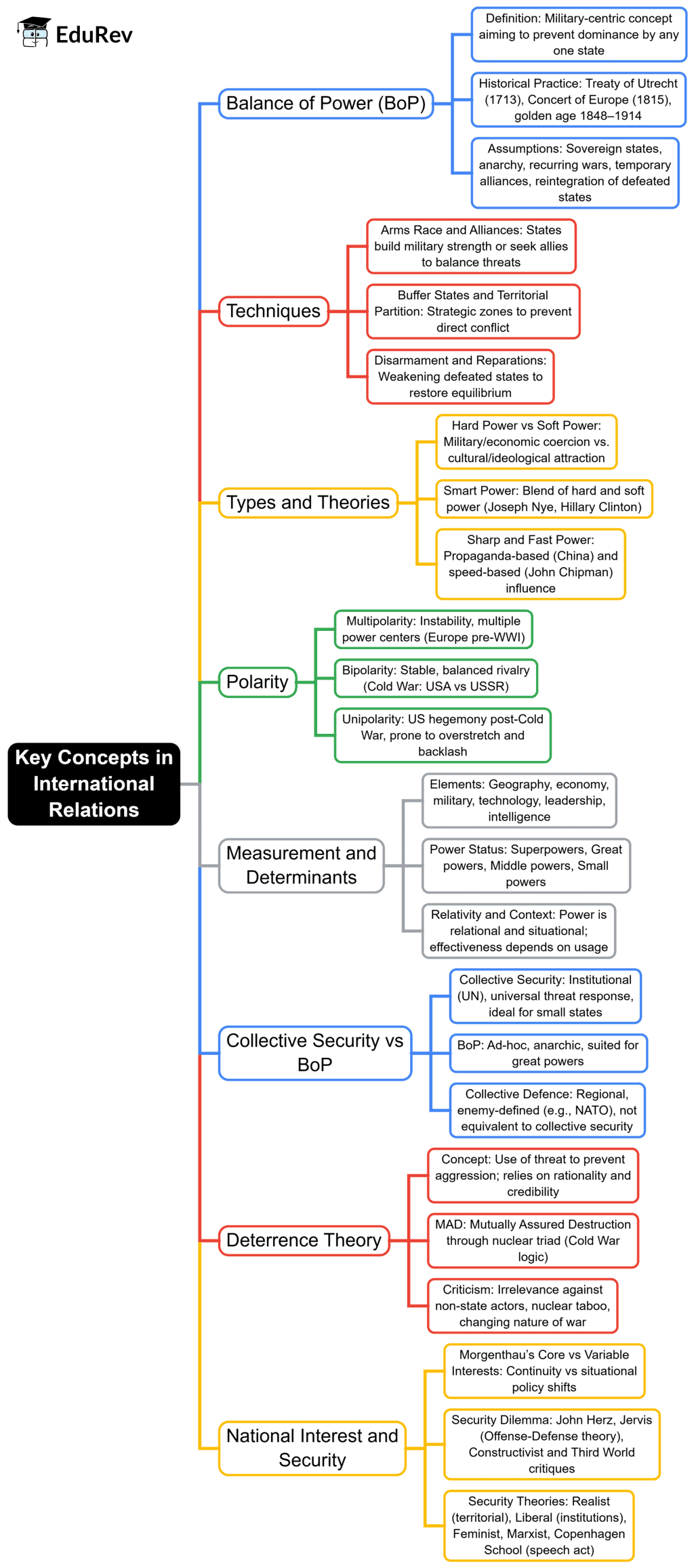UPSC Exam > UPSC Notes > PSIR Optional for UPSC > Mind Map: Key Concepts in International Relations
Mind Map: Key Concepts in International Relations | PSIR Optional for UPSC PDF Download

The document Mind Map: Key Concepts in International Relations | PSIR Optional for UPSC is a part of the UPSC Course PSIR Optional for UPSC.
All you need of UPSC at this link: UPSC
|
173 videos|574 docs|148 tests
|
FAQs on Mind Map: Key Concepts in International Relations - PSIR Optional for UPSC
| 1. What are the key theories of International Relations that UPSC aspirants should know? |  |
Ans. The key theories of International Relations include Realism, Liberalism, Constructivism, and Marxism. Realism emphasizes power dynamics and state interests, while Liberalism focuses on cooperation, international institutions, and democracy. Constructivism highlights the role of ideas, identities, and norms, and Marxism critiques capitalism and its impact on global relations.
| 2. How does globalization affect International Relations? |  |
Ans. Globalization significantly impacts International Relations by increasing interconnectedness among states and non-state actors. It facilitates trade, cultural exchange, and the flow of information but also leads to challenges such as economic disparities, environmental issues, and the spread of terrorism, which require cooperative international responses.
| 3. What roles do international organizations play in International Relations? |  |
Ans. International organizations like the United Nations, World Trade Organization, and NATO play crucial roles in promoting peace, security, and cooperation among states. They facilitate dialogue, establish international norms and laws, provide humanitarian assistance, and address global challenges such as climate change and health crises.
| 4. What are the major challenges to International Relations today? |  |
Ans. Major challenges to International Relations today include geopolitical tensions, terrorism, climate change, economic inequality, and cyber threats. These issues require collaborative solutions and multilateral approaches, as they transcend national borders and affect global stability.
| 5. How can understanding International Relations benefit UPSC aspirants? |  |
Ans. Understanding International Relations helps UPSC aspirants develop critical thinking skills, enhance their knowledge of global affairs, and improve their analytical abilities. It prepares them for questions in the General Studies papers and interviews, ensuring they can engage with contemporary issues and contribute to informed policymaking.
Related Searches
















